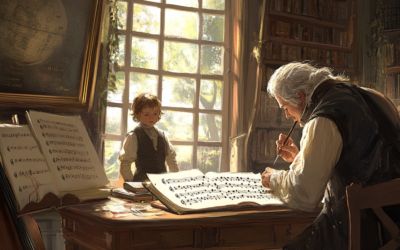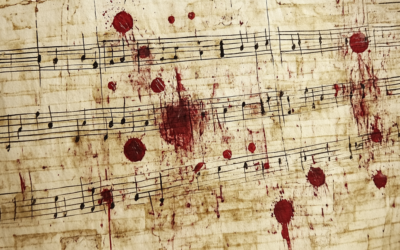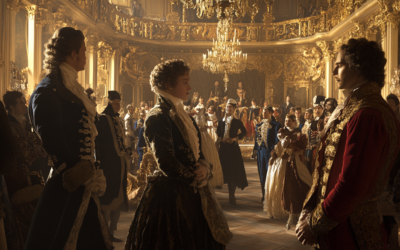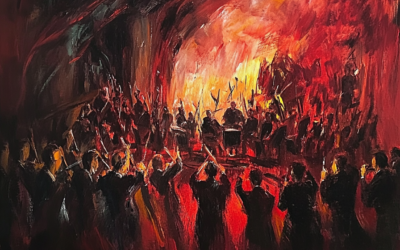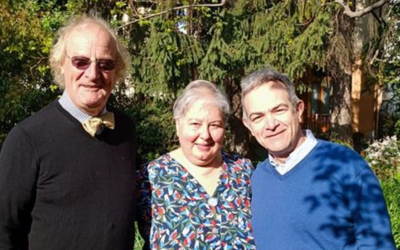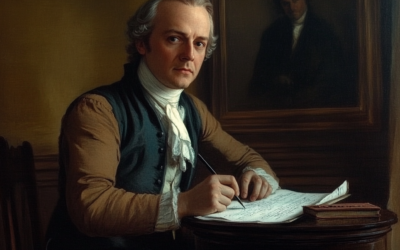A Resounding Success
Luchesi’s Concerto Revived at Milan's Sala Verdi
A standing ovation followed the performance of our revised edition of Luchesi’s Concerto in F for piano and strings at the Sala Verdi in Milan, conducted by Maestro Giorgio Rodolfo Marini and performed by the Insubria Chamber Orchestra.
Mozart: The Fall of the Gods
This book offers a fresh and critical look at the life of Wolfgang Amadeus Mozart, challenging the myths that have surrounded him for centuries. We strip away the romanticised image of the “natural genius” and delve into the contradictions within Mozart’s extensive biographies. Backed by nearly 2,000 meticulously sourced citations, this work invites readers to explore a deeper, more complex understanding of Mozart. Perfect for those who wish to question the traditional narrative, this biography is a must-read for serious music lovers and historians.
"Luchesi’s forgotten masterpiece returned to the stage, proving that some of the finest compositions of the Neoclassical period have yet to be fully appreciated."
@MozartrazoM
Recently, at the iconic Sala Verdi of the Milan Conservatory, a remarkable concert featured our revised version of Andrea Luchesi’s Concerto in F for piano and strings. This revival, alongside works by Donizetti, Costantini, and Perosi, was a resounding success, met with enthusiastic applause from an appreciative audience.
Conducted by Maestro Giorgio Rodolfo Marini, and with Maestro Carlo Levi Minzi as the soloist, the performance by the Insubria Chamber Orchestra brought new life to Luchesi’s forgotten masterpiece. The audience was captivated by the elegance and depth of Luchesi’s composition, which, thanks to our careful transcription and revision, revealed a richness that had been overlooked for too long.
This event not only celebrated Luchesi’s contribution to the world of classical music but also demonstrated how important it is to re-evaluate composers who have been unjustly neglected by history. The applause and standing ovations confirmed that this was a long-overdue recognition of Luchesi’s brilliance.
You May Also Like
Leopold Mozart: A Portrait in Shadows
Leopold Mozart’s life was a whirlwind of ambition, deceit, and disappointment—a stark portrait of a man chasing success at any cost.
The London Pieces: Mozart or Make-Believe?
The London pieces, edited for modern tastes, lose their authenticity. Only the uncorrected originals show Mozart’s true early voice—naïve yet authentic.
The Myth of the “Viennese Classics”: Mozart’s True Heritage and the Empire’s Agenda
Mozart wasn’t the quintessential Viennese; rather, he was shaped by German heritage and an opportunistic empire that controlled music as fiercely as it did its people.
The Nationalistic Roots of the Philharmonic Legacy
Under Goebbels, the Berliner Philharmoniker became an instrument of Nazi propaganda, framing German composers as the supreme guardians of musical heritage.
Australian Scholars Confirm Our Findings on Mozart’s Forged Catalogue
Professor Martin Jarvis of Darwin University confirmed our long-held findings that Mozart’s personal catalogue is a forgery, during his recent lecture The Mozart Scam. Forensic analysis continues to unravel the myths surrounding Mozart’s legacy.
The Italian Journey
The Mozarts’ Italian journey of 1769 was not a leisurely Grand Tour but a strategic mission driven by ambition, navigating the treacherous roads of 18th-century Europe in pursuit of fame and fortune.


